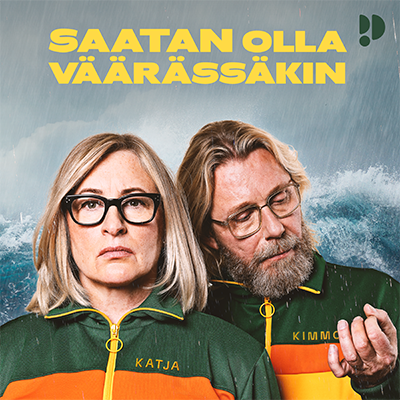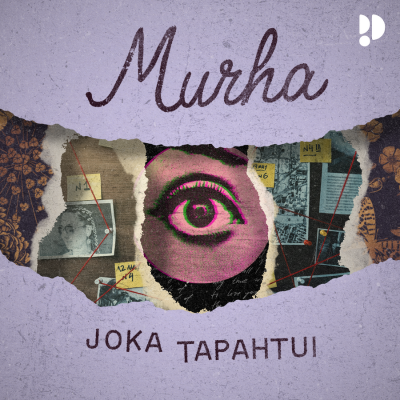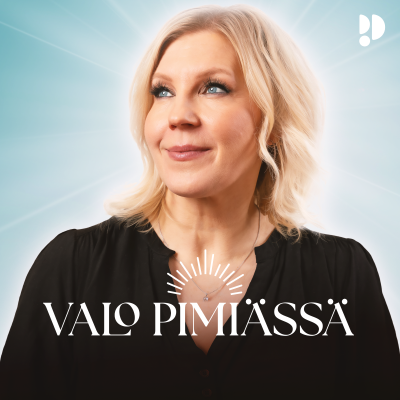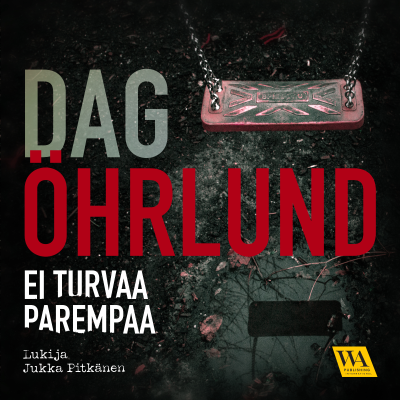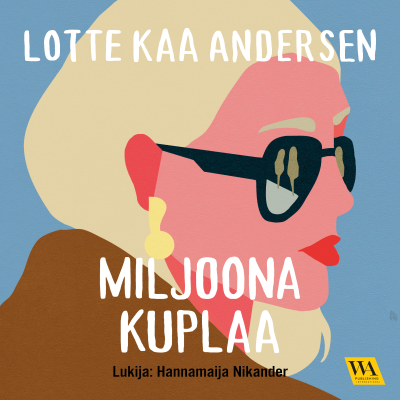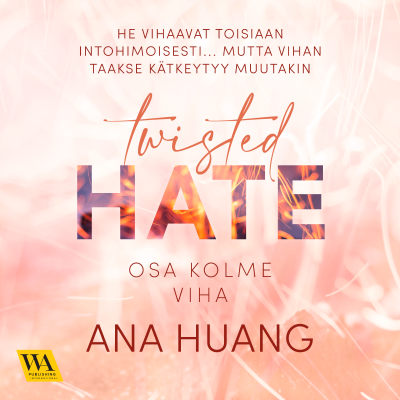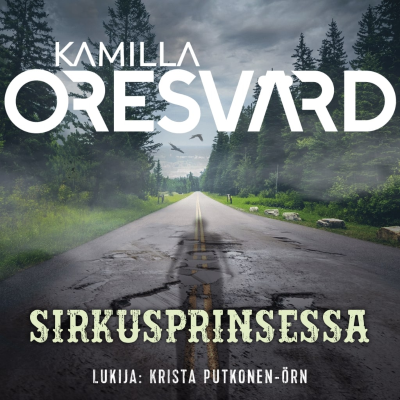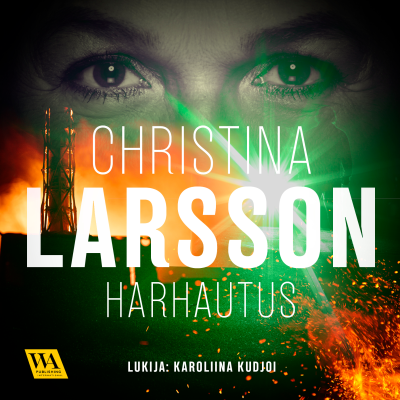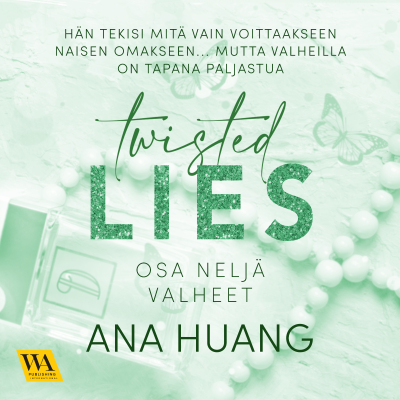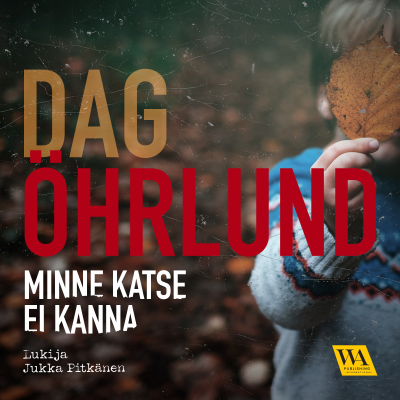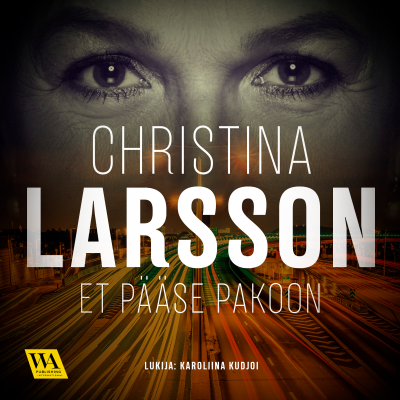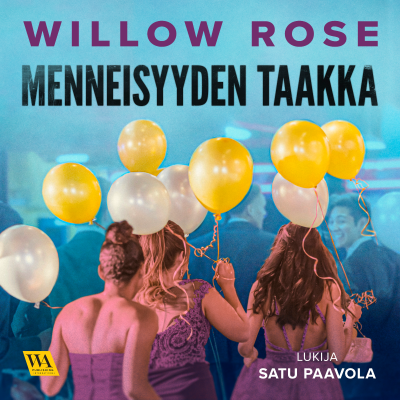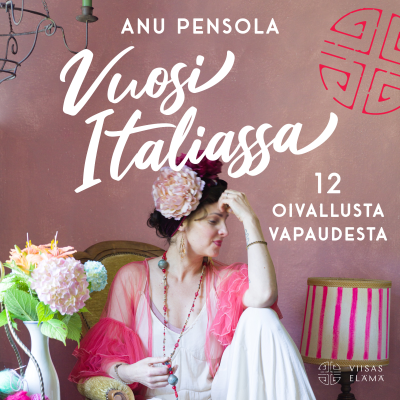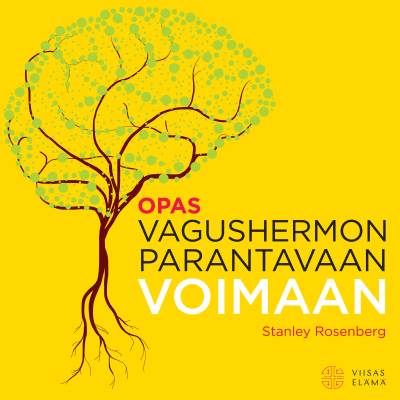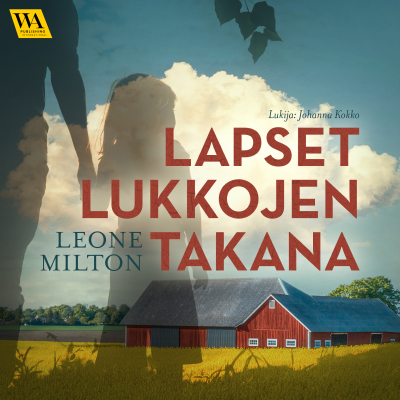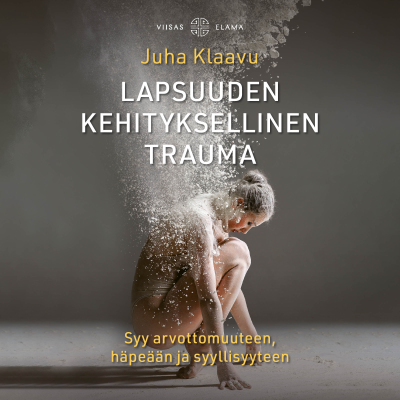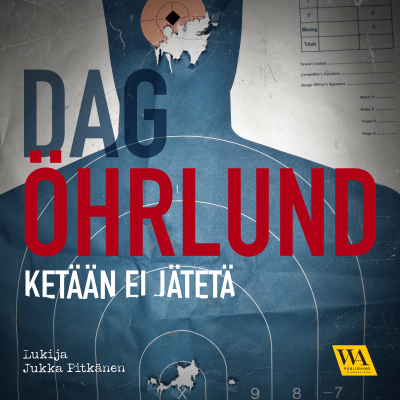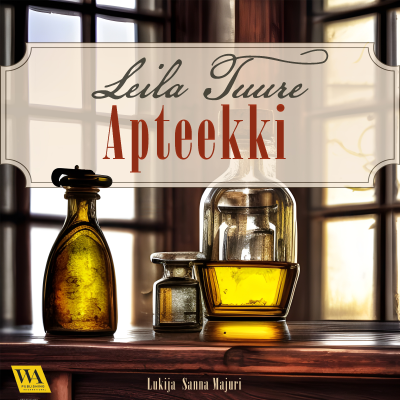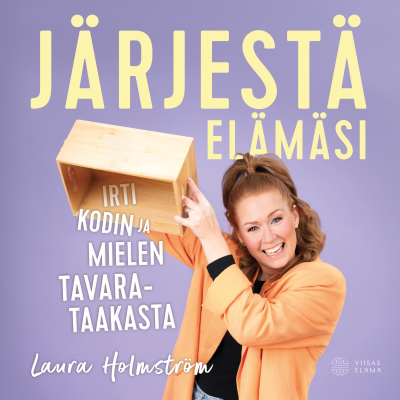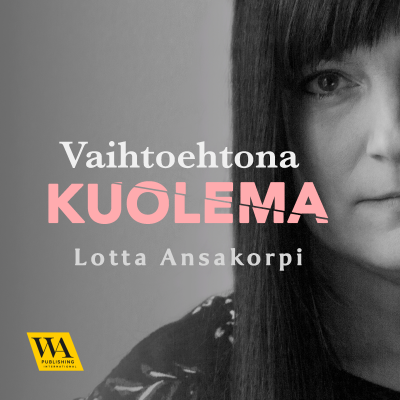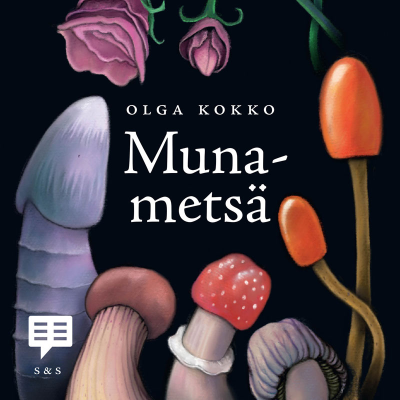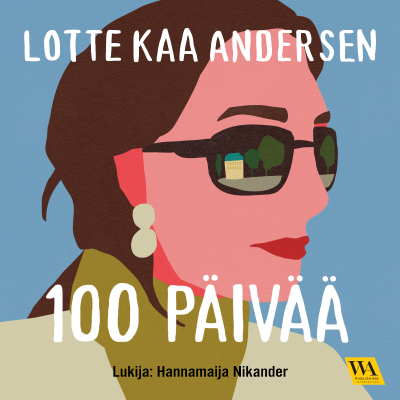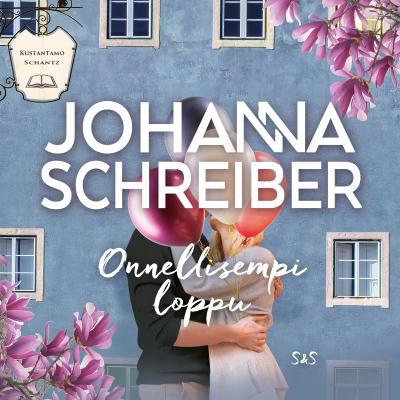
Poly-ish Movie Reviews
Podcast by Joreth InnKeeper
30 vrk ilmainen kokeilu
Kokeilun jälkeen 7,99 € / kuukausi.Peru milloin tahansa.

Enemmän kuin miljoona kuuntelijaa
Tulet rakastamaan Podimoa, etkä ole ainoa
Arvioitu 4.7 App Storessa
Lisää Poly-ish Movie Reviews
Welcome to Poly-ish Movie Reviews, where I watch the crap so you don't have to! I watch a lot of movies. Some of those movies are great. But a lot of them are crap. I'm here to help you sort out which is which, so that you don't have to waste your time on bad cinema, unless that's your thing. No judgement - I like a lot of terrible movies. I'm just saying that, as we polys know, love may be infinite, but time is not. Let me help you manage that increasingly rare and precious time of yours by sharing my opinions on movies that some have claimed to be "poly" so that you can make better decisions on which ones to spend your time with.
Kaikki jaksot
58 jaksotYet another cop drama with non-monogamous people involved in a murder? Can Hollywood actually show ethical non-monogamy or is it just another excuse to punish "deviants"? Joreth reviews the Netflix show, iZombie, to find out. www.PolyishMovieReviews.com [https://www.PolyishMovieReviews.com] That was a surprisingly hopeful episode. Well, I mean, the whole series has a hopeful tone, given the subject matter and the impossible situations it spirals into. But I was still surprised by this one. iZombie is a quirky little show. The premise is that a young, over-achieving doctor gets invited to a trendy boat party by a rival who is impressed with her doctoring skills. At the party, a new designer drug is introduced, everyone but the doctor gets high, and then, inexplicably, a zombie outbreak happens. The doctor, whose name is Liv, gets scratched as she runs to jump off the boat and wakes up in a body bag on the beach with all the other victims of the party. This is just the opening credits. Now the walking dead, Liv goes into a major depression (I mean, who wouldn't?) upon learning that she's dead and craving brains. She breaks up with her fiance, quits her promising career as a heart surgeon, and goes to work in the cororner's office, where she can steal the brains from the dead patients when she closes them back up after their autopsies, before sending the bodies out to their final arrangements. Now, here's the kicker ... after she eats someone's brain, she gets flashes of memories from that person's life and starts to take on some of their personality characteristics. She accidentally has a flash of a murder victim's life while the investigating officer just happens to be in the morgue inquiring about the body. Her boss (who has figured it all out within 10 minutes of the first episode) covers for her blurting out this data that she couldn't possibly know by claiming that Liv is a pyschic. Because that's easier to swallow. So now Liv eats the brains of murder victims that her boss looks the other way for, in exchange for studying her condition and trying to find a cure, and she runs around solving crimes as a psychic cororner sidekick to the rookie cop who believes her "visions". I really like this show, but then I really like police procedural shows. I always have, and I continue to love them even now with all the shit going on about real cops. But that's not the point of this review. In this second episode, we meet a couple in an open marriage. Javier is a brilliant young artist married to Lola, who appears to adore him. Javier is a stereotypical "male artist", meaning that he is all about passion - passion in his work, passion in life, and passion in bed. When Liv gets a flash of Javier having sex with someone who is not Lola, the crime fighting duo think they have a break in the case with his affair. As the cop says, "it's always the spouse". But when they go to Javier's loft to speak with his wife, they find the mistress with her arms around Lola, comforting her. Lola introduces her as "my favorite of Javier's lovers". This is where we learn that they have an open marriage. I like this scene because Lola defends her relationship with Javier without sounding defensive, as in "methinks she doth protest too much". [insert audio clip of Lola introducing Tasha as "my favorite of my husband's lovers"] Now, here is where I would normally get really irritated at how non-monogamy is portrayed in pop media. In The Mentalist, the open marriage was a red herring, and I loved that about the episode. The cops spend time and resources chasing down dead end leads because sex is so often a motive for murder, but their particular open marriage had nothing at all to do with the murder. That's very rare, in my experience. Usually these shows indicate who is the "bad guy" by making them kinky or non-monogamous or a casual drug user, because only deviants do those sorts of things, and deviants must also be criminals, obvs. So usually I get pissed off about that. But I didn't see the anger in this one, because I see the motive all the time in the poly community, so it's clearly a common experience. The anger at being replaced, not murder, of course. That's a very common fear, whether it's from couples who create a bunch of rules to protect their marriage or it's monogamous people who tell us without a shred of shame that they could "never do that" because "what if your partner finds someone they like better than you?" As usual, in order to discuss the parts that are relevant to polyamory, I have to spoil the big reveal. SPOILERS: We eventually find out that Javier knocked up his manager's teenage daughter. Which could have led to the manager being the murderer as either pissed off at Javier for "cheating" on Lola, whom the manager secretly loved and not-so-secretly thought Javier was a poor husband for, or the manager could have been pissed off at this older man getting his daughter pregnant. But, as was dropped in the clip I just played for you, Javier and Lola never had children because Javier never wanted children. The detective neglected to ask Lola if *she* ever wanted kids. [insert clip of Lola saying that Javier was leaving her to start a family that he never had with her with an 18 year old girl]. I see this play out in a lot of ways in the poly community. The fear of being replaced is a very common fear. And, unfortunately, a fear that is realized all too often. Part of the point of being polyamorous is that we don't *have* to end otherwise working relationships in order to get into other relationships. That's a monogamous problem. But this couple in this show was not polyamorous, they were hierarchically non-monogamous. And, so it seems, are many other people who dip their toes in the poly world. Couples try to "open up" their existing relationships without actually changing their existing relationships. They make all these rules designed to keep "the couple", not just intact, but at the top of the priority chain. No matter what, "the couple" always comes first, as if "the couple" is a person in its own right. You can have other lovers, but you can't *love* anyone as much or more than you love me. You can have sex, but you can't have babies with anyone else but me, even though babies are a risk of sex. You can care for other people, but your home and your family are me. In this sort of arrangement, you simply cannot have a situation that Lola and Javier found themselves in. You can't have your side chick get pregnant. Nevermind that pregnancy is a possibility in hetero PIV sex, we won't make any contingency plans for it because we have decided that it just won't happen. So you can't get your side chick pregnant. Especially if you didn't want to get your main chick pregnant. Lola can't have another woman bear Javier's babies or have a marriage-like relationship with him, and Javier, apparently (since he wasn't around to actually say so), can only have one primary lover at a time. I've seen lots and lots and lots of people out there hurt and angry that their spouse or primary partner wanted to elevate one of their secondary partners to something resembling the primary relationship, and lots of people surprised to find that they can really only feel what they interpret as "love" for one person at a time and so leave one partner for another even after years of non-monogamy. So, while I really don't like the representation that non-monogamous relationships get from pop media as that of selfish, lust-driven narcissists out to bang everyone with a pulse, seducing questionably aged people, leaving a trail of wreckage behind them, or justifying murderous rage (because I guarantee most of the target audience of this show is probably singing the Cell Block Tango right now [he had it coming!]) ... while I hate that this is the picture frequently painted of us, it's also not entirely inaccurate, although hyperbolic. So I'm feeling ... not quite charitable, because this sort of possessive, limiting, restrictive version of non-monogamy currently flooding and tainting my communities really irritates me ... but I'm feeling like this might have some teachable moments in it for the community. First, with the candid admission of non-monogamy in the beginning, and later with the horribly absurd yet inevitable conclusion of what trying to do non-monogamy with these sorts of premises leads to. Not the murder, but the feelings that these people had. This episode is technically poly-ish because there is definitely consensual non-monogamy happening here, and while the conflict might have been about the non-monogamy and not some outside pressure, it was a conflict that I see actually happen in the poly community - that of couple privilege and trying to prioritize one relationship at everyone else's expense (which is, also technically, "pressure from outside" since it's what I call the Monogamous Mindset leaking into non-monogamy). Maybe (hopefully) it doesn't result in murder all that often in real life, but certainly a lot of people feel an awful lot of strong emotions when their primary relationships are not flexible enough to change with changing circumstances or evolving feelings. These are the kinds of emotions to expect when we legislate our relationships to prevent addressing our insecurities and fears rather than build dynamic, resilient relationships that can accommodate inevitable change and the processing of challenging emotions that come with change. The only constant in life is change, after all. It could possibly also be the final thoughts of the episode that make me not hate it. Most cop dramas do not have final thoughts voice-overs with some sort of moral lesson at the end of the episode. A lot of them can leave an audience with a sense of hopelessness or despair at the depravity of humanity on screen. But not this one, with the unusual premise of this show. Liv is undead. Can you imagine waking up one day to realize that you are dead? That you need to eat brains? That you are in danger of infecting those you love if you get too close to them - accidentally scratch them, make love to them? That you are alone in the world? That your life is literally over, yet you still have to keep going? I bet some older members of the queer community know exactly what that feels like. Or, maybe, those who know that feeling didn't make it to old age, but back in the '80s and '90s, a lot of them knew this feeling. Minus the brains-eating part. Liv is going through an existential crisis as this show dawns. She withdraws further and further into herself, to protect those she loves and also because she is struggling with who she is and what her purpose in life is. But, as we have established even this early in the show, she takes on some of the personality of the person whose brain she has consumed. And this person LIVED. Javier was passion personified. He exuded life. He felt every moment. When he entered a room, he saw *everything*. And, for a short while, now so does Liv. I've been suffering with depression for the last decade or so now. It wasn't a part of my brain chemistry until I experienced a series of major losses, one on top of the other, and I have been unable to fully claw my way out ever since. Some days, my depression is bearable. I can fool most people into believing that I'm normal. And every so often, enough little things go my way that the fog lifts for a while and I am my old self again, without any depression. And then I have one minor setback and suddenly everything is insurmountable again. Liv on artist-brain is like me on one of my sunny days, or me before I ever knew depression. [insert clip of Liv grasping for the light] I'm a little bit like Liv at the end here. I am not currently on "artist-brain", but today I remember that I used to be. Some days I can't remember that, but today, while I don't feel it, I remember that I once felt like that. So I need to remember that there might be a life waiting for me, even though I'm dead. Which sounds awfully morbid, and has nothing to do with polyamory. But it felt hopeful to me. Maybe it'll feel hopeful to others.
A movie in French about polyamory? Will this finally be the French film that Joreth doesn't hate? Does it actually have any polyamory in it? www.polyishmoviereviews.com [https://www.polyishmoviereviews.com] Apparently my distaste for French ennui cinema extends to French Canadian ennui cinema. I just don't like ennui, I guess. Yet another Netflix recommendation. Heartbeats is about "two best friends, Mary and Francis, who meet a charismatic wanderer named Nick and suddenly find their longtime friendship tested to its limits. As the love triangle between the three intensifies, Mary and Francis vie for Nick's affections in this intense story". Well, it's not wrong, exactly. It's just not nearly as interesting as the summary makes it sound. Which, to be honest, wasn't that interesting to begin with. I will say this about it. I think it was well acted. The seething jealousy that Marie and Francis feel throughout the film felt authentic as a viewer. But 2 hours of people smoking and glaring at each other from across rooms is just not my idea of a good time. Marie and Francis meet Nick. Both develop an interest in him. Nick is so neutrally friendly that it's not even clear what his orientation is for the entire movie. He never says or does anything that could be construed as genuine romantic or sexual interest for either character. And they, of course, don't say or do anything overt to Nick. They just seem to be really good, affectionate friends. Eventually Marie and Francis actually get into a rolling-on-the-ground fight, ostensibly over Nick, yet neither of them has admitted to anyone that they harbor feelings for him. Annoyed, Nick stops hanging out with them. After not seeing him for a while, both Marie and Francis run into Nick independently and admit that they have romantic feelings for him and he rejects them both. So Marie and Francis fuck each other? When Francis is gay, not bi? Later, they run into Nick at a party, who tries to say that he's happy to see them, but Francis emits this nails-on-a-chalkboard scream to drown him out, so Nick walks away and Marie and Francis glare at his diminishing back until they, too, turn and leave. Interspersed throughout the story, we see these little vignettes of, I dunno, documentary-style interviews I guess? Of people who have utterly miserable love lives. Nothing in any of these stories is about non-monogamy, they're all about breakups, or falling in love with the "wrong person", or one guy who doesn't seem to believe in bisexuality? I have no idea what any of this had to do with the story, except to maybe set the tone that French people only seem to be happy when they're miserable, I suppose. I know it's a terrible cliche, but I've yet to watch a potentially poly movie that even tries to disabuse me of this notion. On top of all this, the movie was fucking boring. Nothing happened. People smoked a mountain of cigarettes and complained about the movies they saw and Nick flirted his way obliviously through life, until an hour and a half later someone finally admitted to having feelings and someone else said they don't feel the same. Then everyone was unhappy some more. I got so bored, I started surfing Quora, which was really hard to do because I had to read subtitles. There was no story here. No plot. No conflict except the one that the characters made for themselves. Everyone was just ... unhappy. Except for Nick, who was oblivious. That's 2 hours of my life I won't get back.
Can a Hollywood-made dramatic biopic made in the current century actually show polyamory? That might depend on how we define "polyamory". Joreth reviews the narrative version of Lady Georgiana Cavendish's life as portrayed by Natalie Portman to see if polyamory happened during the Georgian era and if polyamory can be shown in a movie made in the modern era. www.polyishmoviereviews.com [https://www.polyishmoviereviews.com] The Duchess is based on a true story about Georgiana Cavendish, Duchess of Devonshire, who married William Cavendish, the 5th Duke of Devonshire. Biopics can be challenging to review because, on the one hand, I don't like to give out spoilers and I only do so when it's absolutely necessary to explain why a movie is classified as "poly" or not. But on the other hand, these are true stories that happened years, sometimes centuries ago, and the conclusion is already well-known (or ought to be). I think I said in another review that we don't watch biopics to be surprised at the ending, we watch them to see how this particular storyteller tells this particular story. The short answer here, because I like to give it right up front so that you don't have to sit through an entire review unless you actually want to hear all my ramblings, is that I really enjoyed the movie, and I'm going to say that it's poly-ISH. I thought it was well acted, well directed, the costuming was georgeous (as it should be, given the main character's importance in the fashion world), and it was surprisingly accurate, according, at least, to what Wikipedia has to say about these historical characters. Normally I try to keep my reviews to the poly (or not) content within the film, regardless of historical accuracy, but this time I think its accuracy is relevant to my categorization. Georgiana Spencer is the oldest child of John and Georgiana Spencer, and much loved. In fact, "love" is rather prevalent in her childhood home, in contrast to many noble and upper class homes of her time. Her parents doted on her and, apparently on each other. According to Wikipedia, there is no record anywhere that indicates anything other than loving monogamy for life from her parents, quite apart from the custom of the time. This, unfortunately, sets up our young G with some unrealistic expectations of adulthood and marriage in the peerage. On her 17th birthday, Lady Georgiana was married to the most eligible bachelor in English society, William Cavendish, according to the arrangements of her mother. G (as she is sometimes called) had only met her husband-to-be twice prior to the deal being made, but she believed it to be a love match. Her mother had hoped to not marry her off so young, but could not pass up the opportunity to raise her daughter's station to one of the most powerful men in the realm. Also, a true fact. So, off she went, the new Duchess of Devonshire. Unfortunately for G, William did not consider "love" to be a relevant factor in marriage. He had entered into a business contract for a male heir, not a soulmate. And so begins a long, volatile relationship between the Duchess and Duke of Devonshire. William seems to have no interests in anything other than cards and his dogs. G, meanwhile, develops quite a few passions, including drinking, gambling of all sorts, politics, and fashion. Over the course of their marriage, she becomes the quintessential fashion/style icon of the day, with all of English society hanging on her every design and fashion trend. And, as many of my very male partners have been surprised to discover after numerous rants from me, fashion very strongly influences politics and vice versa, so our young fashionista is also quite politically influential. William does maintain one other interest - sex. G discovers numerous affairs and unhappily looks the other way, as is the custom. Several years into her marriage, G is introduced to Charlotte, the daughter of one of his dalliances from before their marriage, whose mother is now dead and William decides that G should raise her. In the movie, we see G as resistent to and hurt by this revelation at first, but growing to love Charlotte as if one of her own children. The surviving correspondence between G and her mother indicate that the love, at least, was true - she did indeed adore Charlotte as her own daughter. G goes on to have 2 more daughters before finally producing a male heir for William, thereby finally fulfilling her half of the marriage contract that William arranged for. And this is where the poly - or not - content comes in. Until this point, we only see William as having indiscriminate sexual affairs with various staff, and G not having any affairs of her own. At this time in real history, a woman of G's status was allowed to have affairs, the same as her husband, but only after producing a son to secure inheritance. In the movie, this little fact is never mentioned. It is just assumed that her husband is a common philanderer and she is the dutiful wife, pained by his cheating and his withholding of affection, but faithful. 8 years into marriage, after the birth of their two daughters but before the birth of their first son, William and G take a holiday in the city of Bath, where they meet Lady Elizabeth Foster, known as Bess. G and Bess develop a very close, intimate friendship. Surviving correspondence confirms that they had a strong, adoring bond, but no indication of it being anything other than platonic. The movie implies otherwise, at least once. Bess has become destitute after separating from her husband, as one might expect in a society where women had no rights and no property of their own. So G suggests that Bess move in with her and her husband. Some time after moving in, G discovers her husband having an affair with Bess. In the movie, this devastates G, who declares that her husband "took" the one thing in the world that was her own - her friendship with Bess. [inserted movie clip of G's confrontation with William over Bess and her demand that Bess leave and William's denial of that demand] G is now forced to live in the same home with her husband and her husband's mistress, her former best friend, facing them both at the breakfast table every morning. At this point in the film, I would have said that this is not poly, but it could have been a scenario that not-really-poly couples find themselves in when they attempt an open marriage that they're not ready for. Imagine, if you will, a stereotypical unicorn hunter couple, where they agree to "open up" because the wife is bisexual and the husband "allows" her to explore her bisexuality as long as it's only the same-sex part she explores. This hypothetical couple finds a hot bi babe who agrees to be with the wife (but don't worry, he won't participate, because the wife is the only one who is allowed to have sex with him!), except one day the wife comes home to find her hot bi babe is in bed with her husband, contrary to all the rules they have about no sex with the husband, no sex alone with the hot bi babe, etc. So the wife pulls a veto because this was supposed to be HER girlfriend, and the husband just refuses to break up with her. Now the happy little pseudo-FFM triad is a hostile FMF-V with the wife calling the hot bi babe "homewrecker" and the husband totally lost in NRE with the new shiny. So I might have put this movie in a poly analogues category because, other than the sex between the two women (which was only implied once in the film, and not explicitly an ongoing part of their friendship), that's pretty much what happened - hubby stole the side chick from wifey and refused a veto. But we're only at the 1/3rd mark in the film. Apparently, in real history, the talk of the town was that Bess took advantage of her friendship with G and "engineered her way" into a sexual relationship with William. Bess also engaged in several affairs of her own outside of her relationship with William, which were well documented. The whole arrangement of a married man having his mistress actually live in his marital home along with the wife was quite the scandal. But there's more to the story, both in the film and in real life - we'll get to that. So, back to the film, G is being tortured by being face to face with her husband's mistress, her former best friend, every day. Bess keeps trying to be friends with G, but G keeps rebuffing her, and William remains irritatingly aloof and uncaring. Frankly, if it weren't for the implication in the film that Bess was using her connection with William to get custody of her children, I wouldn't understand why she wants to be in a relationship with him at all. He is an uninteresting man with no personality whatsoever. G, at least, was stuck with him because she was married to him and it wasn't her doing. The movie does show tenderness between William and Bess, I'm just not sure what *else* there is to a relationship with him other than using his power. In real life, Bess separated from her husband after 5 years of marriage and he somehow managed to refuse to allow her to see her *two* sons for 14 years. In the movie, William gets her *three* sons back after a few weeks of their little "arrangement". So, while William and Bess are playing house in G's home, making this not really poly because G and William don't love each other and it's basically a cheating story at this point, G starts having affairs of her own. In the film, G knew a young man as a teen, named Charles Grey. They lost touch when G got married and Charles finished school and got into politics. As Charles entered Parliament as a young adult, their paths crossed again. This is the point in real history where G and Charles *actually* met. After her estrangement from William over Bess, G begins a love affair with Charles, not a sexual affair. Remember, in real history, a woman in G's position was allowed to have affairs but only after birthing a son, and in this point in the movie, G has not yet had a son. Of course, in the movie, we do not know that she is allowed to have dalliances of her own at any point. G proposes to her husband and Bess that she will give them her blessing as long as William gives his own blessing to her affair with Charles. William outright refuses and threatens to kill Charles if she doesn't call off her relationship with him. Bess tries to stand up for G (still trying to rekindle their friendship), but William reminds everyone just who is in charge around here. So G cools things with Charles. Eventually G conceives a male heir. In real life, it is unknown when her affair with Charles Grey began, but the movie indicates that they finally consummate their relationship almost immediately after the birth of G's son as the result of some matchmaking by Bess in another move to prove her love and friendship to G. Given that, in real life, G has Charles' illegitimate daughter less than 2 years later, that is probably accurate. Once again, this is not exactly a poly relationship. This is two people trapped in a marriage of convenience having extramarital affairs with the people they would rather be married to if they could be. Except it appears that G is warming to Bess again. In a breakfast table conversation, G announces that she is going to the city of Bath ostensibly for her health but probably to arrange more time with her lover, Charles. At William's look of surprise, she announces [inserted clip of G saying Bess can stay here and look after "our" husband"]. She may have said that sarcastically, but it's a pretty poly thing to say. I get the impression that, William's lack of permission notwithstanding, G has mellowed over his ongoing relationship with Bess because of her own relationship with Charles, and Bess's attempts at reconnecting. One particular scene that I liked, which has nothing to do with polyamory or lack thereof, is when G is lying in bed with Charles and they're going over the equivalent of the tabloid gossip columns that love to profile the fashionista Her Grace, Lady Georgiana, Duchess of Devonshire, and the camera shows us a little political drawing of G, implying that she uses her sex appeal and promises of inappropriate favors to get votes for the political party that she supports. I liked this scene because that was a real drawing of the real Duchess and a real accusation made against her. It appears that the sentiment "celebrities should stay out of politics" is not a new one. Anyway, G's not so discreet indiscretion raises her husband's ire and he storms her holiday house to demand that she give up her lover or else he will pull all his rank and do to her what Bess's husband did to Bess as well as ruining Charles' political future. So G calls things off with Charles in exchange for her children and goes back to William. At this point, she discovers that she's pregnant with Charles' child. Wiki history does not indicate when their affair actually ended. G has their daughter and is forced to give her to Charles' parents to raise. This is the turning point in the movie of her relationship with Bess. William makes Bess inform G of William's decision to have G disappear for the pregnancy and give up the child. William intends for this confrontation to be a two-against-one scenario, disempowering G even further, but Bess turns on William for his lack of empathy. While she understands the position that women have in society and is willing to play within her role, she is angered by William's lack of compassion for the difficulty that these roles place on them. So Bess refuses to take William's side, even though she goes along with the decision. [inserted audio clip of Bess's declarations to G and William] William will not be allowed to play house with his mistress while he banishes his wife for daring to get pregnant from her own affair. Still not terribly poly. Regardless of who Bess is in favor with at any given moment, G and William are forever at odds. G's only two loving relationships were ripped away from her by her husband, as well as a child. And William is just a jerk. But the final scene with text explaining what happens to everyone from here shows G walking up to Bess and William and chatting pleasantly with the both of them. The text states that Georgiana, Bess, and the Duke lived together until Georgiana's death. The next shot is of G and Bess in the garden holding hands, and the text says "With Georgiana's blessing, Bess went on to marry the Duke and become the next Duchess of Devonshire." Because of this final scene, I would put the movie in the "poly-ish" category, but it would be there on shaky ground. While it's not exactly ambiguous, I mean, it flat out says that the 3 of them live together until death and that G gives her blessing for the other two to marry, and Kiera Knightly is directed to express affection towards Bess in this final shot and a softening towards William in the previous shot, it's still ... not quite right. So in a move that I don't like to do, I'm turning to the real history. Bess was found to be wearing a lock of G's hair in a necklace upon her death and had a lock G's hair in a bracelet on the bedside table. Bess died many years after G and yet still kept those momentos on her until the day she also died. While Bess was living with the Cavendishes and sleeping with William, and after G knew about it, G wrote many letters to Bess professing her very strong love for her. One such oft-quoted passage includes: "My dear Bess, Do you hear the voice of my heart crying to you? Do you feel what it is for me to be separated from you? … Oh Bess, every sensation I feel but heightens my adoration of you." The movie portrayed their friendship as having been destroyed upon the discovery of the affair, and a slow transition back to something like a friendship, but it never showed the strength of the passion that G had for Bess even after the discovery. In real life, G, apparently, loved Bess very much and Bess seemed to have returned that love. Bess also was not with William the entire time. She left on several occasions and had long-standing affairs with other influential men, sometimes only returning after both the Duke and Duchess implored her to return. Because the movie was about G, and because she was married to William, I think most people would be inclined to keep putting G in the middle of either a V with her as the hinge and William and Bess as the arms, or in a triad with all three of them together. But because Bess married William after G died, I think of it as more like a V with *Bess* in the middle and the two spouses as the arms. I think a triad can also be defended because, in that second-to-final scene, William asked for some semblance of "calm normality" and Kiera Knightly played G as reaching some understanding about William's choices and being open to building a mutually affectionate connection. But G and William never had anything in common, so I lean more towards seeing it as once hostile metamours beginning to build a bridge. Whatever understanding they came to in that moment, I feel that their connection to each other was never going to be as strong as the connection that Bess had with either of them. So that, plus the real life facts that everyone, including Bess, continued to have affairs outside of their "ménage à trois" allows me to interpret this movie as poly-ish, not just a cheating movie, and not a primary couple with side partners. I think Bess was the hinge that kept their contract marriage together. The three of them lived together in this, whatever you want to call it, for 25 years. Some interesting notes about how Bess was received in the family. She had 2 children of her own with William, in addition to her two sons from her previous marriage. They were born abroad and it took several years before Bess was able to bring them home to be raised along with the Cavendish children. Bess had other affairs with other influential men and actually expected to marry another duke at one time. But after several months of waiting for a marriage proposal that never came, Bess returned home to the Cavendishes. The Cavendish children were none too pleased at their father's remarriage to Bess after G's death. The son, Hart, referred to Bess as "the crocodile". Just in case anyone was wondering, Charles got married shortly after his "niece" was born and he and his wife had 16 children of their own. He moved up through parliament and eventually inherited an earldom from his father, making him Earl Grey. Yes, *that* Earl Grey. He used this particular blend of black tea from China flavored with bergamot oil in his household and served to guests. It became so popular with the guests that Lady Grey was asked if it could be sold. There are two different tea companies who make their claim on the original Earl Grey tea - Twinnings, which claims that they replicated the recipe from Earl Grey, and Jacksons of Picadelly, which says they created the recipe that Earl Grey used. Also, in case anyone was wondering, G's daughter with Charles, Eliza, was eventually told who her real parents were, sometime after G died in 1806. About a decade later, Eliza had her first daughter, whom she named Georgiana. One final trivia fact - One of Georgiana's siblings became the direct ancestor of Princess Diana. polyamory; polyamorous; poly; polya; polyam; poly-ish; nonmonogamy; non-monogamy; open marriage; open relationship; hierarchy; hierarchical; couple privilege; love triangle; vee; adultery; cheating; affair; infidelity; mistress; polygyny; fmf; mff; relationship; polycule; historical; period drama; biopic; couple; throuple; thruple; movie review
Many today think of Pee Wee Herman as a children's show character, but that was not always the case. He started out as a very adult stand-up character that morphed into a weird, surrealist dark humor movie character, that then got a children's show, and THEN ... made this movie. What does all this have to do with polyamory? Good question! Joreth watches Big Top Pee-Wee to find out how polyamory fits in with the world of Pee-Wee Herman. www.PolyishMovieReviews.com [https://www.PolyishMovieReviews.com] Big Top Pee Wee is about as goofy as you'd expect. It's nothing like the first Pee Wee movie - Pee Wee's Big Adventure. That movie is kind of a comedic surrealist masterpiece, Tim Burton's directorial debut and a sign of what we would come to expect from him. The sequel is ... not that movie. Big Top sports a cast of dozens of recognizable B-movie faces and names, which, in my opinion, is just begging to fall under the All Star Curse. That's where the larger the cast and the more famous people on that cast, the higher the chance of the movie sucking. It's sort of a case of a movie being *lesser* than the sum total of its parts. While Danny Elfman scored both Pee Wee movies, Tim Burton turned down the movie in order to direct Batman (good call, Burton). I wouldn't call the movie "terrible". It's enjoyable enough to at least watch once. It's silly and it relies heavily on stereotypical "circus" tropes, which include a noticeable dose of casual racism and sexism and transphobia. But, it was also made in 1988, so what else can you expect? So, the movie is fine, which is not a ringing endorsement. But it absolutely is a poly movie. And to explain why, I have to give spoilers, but, honestly, you'll see it coming a mile away. And I'm going to talk about side characters, without giving away any of the major plot points or the conclusion of the main events. Big Top Pee Wee is a very simplistic rom-com plot - the protagonist starts out in a relationship with the "wrong one", has a chance meeting with Ms. Right, and somehow has to ditch Ms. Wrong and overcome the culture clash obstacles to win over Ms. Right before the final curtain. So far, nothing very poly about that. That comes in with the subplot of what happens to Ms. Wrong. Pee Wee starts out engaged to a school teacher, Winnie, in the very conservative and small town near his farm. They seem to like each other, but for no apparent reason other than appropriate gender, age, and proximity because they have nothing in common and absolutely no communication skills. Then the circus blows into town, literally. A big storm hits the town and when Pee Wee emerges from his storm shelter, a bunch of circus folk and their wagons are strewn across his farm. He invites them to stay on his farm to make repairs and rest after the storm, which gives him a chance to meet the star attraction, an acrobat named Gina. After getting caught making out with the hot Italian gymnast, Winnie breaks off their engagement, leaving her available to be courted by Gina's 4 strapping Italian acrobat brothers, who met her in town earlier that day. Their entire relationship progression happens off-screen, so this movie is really only a "poly movie" because it has poly characters in a successful poly relationship in it, not because we actually *see* any real polyamory happening. First we see Winnie angry at Pee Wee for cheating on her, prompting her to break off their engagement, and then leaving him at their scheduled lunch date to have a lunch date with the 4 brothers, causing Pee Wee to sneer and go off in a jealous rant to his pig about how quickly she got over him. Next, we see Winnie learning some acrobatic routines under the tutelage of the brothers, and mending fences with Pee Wee to transition to friends (after further rubbing salt in his wounds with how much better her life is without him). Finally, we see Winnie in the big climatic circus show, performing with the brothers and sporting 4 engagement rings. So, it's fun and fluffy and it has a happy polyamorous relationship, specifically an adelphogamous relationship. Adelphogamy literally translates to "brother marriage", which is a specific form of polyandry practiced historically and occasionally still practiced in some portions of Tibet and Nepal, in which a set of brothers is married to the same woman. Personally, I'm always rooting for the girl to get the male harem, so I may be a bit biased in my praise of this film. It's worth watching once, if you can tolerate 90 minutes of Pee Wee Herman and some 1980s casual bigotry, because the polyamory, what little we see of it, is presented positively and with a happy ending, and in a configuration we don't get to see in the media often. polyamory; polyamorous; poly; polya; polyam; poly-ish; nonmonogamy; non-monogamy; ethical non-monogamy; consensual non-monogamy; ENM; CNM; love triangle; polygamy; polyandry; fraternal polyandry; adelphogamy; movie review
Joreth reviews the biographical historical drama Beloved Sisters, a biopic about two sisters, Caroline and Charlotte von Lengefeld, and the man they love, German poet Friedrich Schiller. Discussing sorrel polygyny, can this FMF polygynous arrangement be polyamorous? Is it true? Did it happen? Does the movie actually show polyamory on screen? Follow along with this movie review with the transcript located on the show notes page of the website at www.polyishmoviereviews.com [https://www.polyishmoviereviews.com] Beloved Sisters is a German biographical film based on the life of the German poet Friedrich Schiller and two sisters, Caroline and Charlotte von Lengefeld. Netflix says: "In the late 18th century, sisters Charlotte and Caroline begin an unconventional romance with poet Fridrich Schiller, who cares deeply for them both. As their situation evolves, each sister finds her life altered in ways she never imagined possible." I have not looked at my Netflix DVD queue in years, so I have no idea how this movie got in my queue. I suspect it was a Netflix recommendation based on other similar films I added to the queue. So I had no expectations whatsoever about this film. I did not know it was in German, I did not know it was biographical, I did not know it was a period piece. I admit that my tastes trend towards "pedestrian". When it comes to foreign cinema, I tend to either love it or hate it, with far more in the latter category. This one, however, I found myself drawn in, way before I looked it up and discovered that it had a few accolades to its name. Was it polyamorous? Yes? I'm going to say "yes", but it was not in any modern sense of the word. It's possible, given how restrictive mores against non-monogamy altered the shape of relationships in previous eras, that it would not be considered polyamorous at the time, but "normal". Period pieces are hard to evaluate for this reason. The definitions of love, of romance, of relationships, all are different in different times and different places. The bonds between women in such highly patriarchal societies tend to be strong, and more common than today's more liberal cultures. Physical affection is different. Hell, even men were, for a time, expected to provide for their wives but save their love and affection for their platonic male friends and their passion for their mistresses. So the bond among these three characters may not have been the norm, necessarily, but would it have been so "unconventional", as per the description, as to have warranted its own term like polyamory? Maybe? Charlotte and Caroline lost their father at a young age, and were raised by their mother, who was widowed from a rare love marriage. Caroline was talked into a marriage of convenience to save the family from destitution, but the mother openly regretted the necessity. All three of them willingly agreed to the arrangement out of love for each other, with Caroline taking on the responsibility without guile or resentment. As children, the sisters pledged their deep devotion to always remain together, to share everything, and they lived by that oath. Charlotte was sent to the big city to be presented at Court in the hopes of winning herself a wealthy husband as well, but she met a poor poet instead. As per the modesty mores of the time, Charlotte and Fritz, as he was called, were chaperoned by her respectably married sister. Because of their deep bond to each other and the considerable amount of time spent with Fritz, both young women fell in love, and he fell in love with both women. Caroline's marriage had to be worked around, so they devised a plan: Charlotte would be sent back to the big city where Fritz could court her under the watchful eye of her godmother and Society, Caroline would stay with her husband to work on changing their mother's mind about allowing Charlotte to marry for love instead of money while somehow procuring a divorce for herself. Caroline sent Fritz away after a one-night-stand, and the three of them continued their scheming and plotting to live happily ever after. Eventually Charlotte was given permission to marry Fritz as he finally started to achieve some success in his career and Caroline celebrated their union. Eventually, the couple went on their way while Caroline remained behind once again, visiting some months later. This is when she learned that the couple had not consummated their marriage out of Charlotte's sense of duty and concern for her sister not being able to "share" Fritz fully with the marriage between them. Caroline urged Charlotte into her husband's bed and slipped out in the night to disappear for several years, except for another one-night-stand at some point when they ran into each other, this one kept a secret from Charlotte. Eventually Charlotte became pregnant and was reacquainted with her sister, who was now traveling in the company of some wealthy man and hoping to begin writing a novel. She moved into the couple's house and midwifed her sister's birth and the early care of her new nephew while writing under her brother-in-law's tutelage. Fritz begged Caroline to finish up the rest of the plan so that the 3 of them could return to his hometown and live as a threesome, but Caroline seemed to get progressively more and more bitter with the knowledge of their betrayal and her recent life choices, including some upper class prostitution with her wealthy and famous traveling companion. Charlotte grew more and more resentful of Caroline's behaviour and at some point discovered her and Fritz's one-night-stand. This drove a wedge between the sisters. So when Caroline announced that she was pregnant, didn't know which of the very many men she had been with recently was the father, and that the knowledge of the baby would almost certainly prevent her husband from finally allowing her a divorce, Fritz arranged for a country preacher to hide the birth and care for the baby until the divorce was finalized. So Caroline set out across the country with the man who introduced the sisters to Fritz, her cousin and one of Fritz' closest friends, as her guardian and protector on the trip. Here, Caroline stops writing and the couple loses contact with her until she finally writes them a very perfunctory wedding announcement between herself and Fritz' best friend. Many more years pass, more kids are born, finally their mother insists on the sisters' reconciliation before her impending death. During this rather morbid family reunion where the mother gets her material affairs in order, the sisters finally have a confrontation, each accusing the other of being responsible for their separation. Until Fritz nearly succumbed to the latest fit from a chronic respiratory illness, whereupon waking, he finds both sisters sitting in shadows, like bookends, at the foot of the bed. Caroline wrote Fritz's first biography and the only biography written by someone in his inner circle. This biography has none of this ménage à trois, as their own mother called it at one point. It has been debated just how close everyone was to each other, but this movie makes it clear that they were definitely a romantic triad, although the sisters did not share any sexual contact with each other. This triad was portrayed as both women equally loving the same man and he loving them both equally, and all three openly dreaming and planning with each other to live as a triad someday. I'm going to say that, although this dream was never realized in this film, and in fact the relationship between the sisters was strained so far at the end that they inevitably parted as two independent couples, that this film nevertheless showed us a functioning triad, kept apart by external forces strong enough to poison the relationships. Both women had a loving and sexual relationship with the man in the middle, both of them were not only aware of each other's feelings but actively encouraged and supported each other (with the exception of the secret, for which it was the secretive part that made the act a betrayal, not the sexual act itself), and the man openly (within the three of them) loved both of the women. They shared a secret language and written code, where they wrote out their plans and dreams, and we saw both honesty within the group and also how secrecy creates tension and breaks bonds. And all of this was set against a beautifully shot historical drama of revolution and class warfare and the patriarchal segregation of the genders. One of the final scenes includes a short but insightful monologue of something that I believe a lot of progressives talk about today - how the real family bonds and the strength of the family comes from the women and the work they do to maintain connections, and how this strong connection may have been what drew Fritz in from the beginning - the sisters and the mother were the real triad, and the intense bond among women was the beacon of family that Fritz had always longed for, so when they allowed him into their inner circle, he was able to feel a connection that is out of reach for most men because that is not how they relate to each other. And that connection among women, once broken, was also responsible for his later isolation and exclusion, because the bonds belong to the women, they merely allowed him along for the ride for part of the time. I really enjoyed this film. It was a drama but it wasn't as heavy as a lot of other dramas I've reviewed. It showed a triad, and even though it did not last, it was not destroyed by bad writing and morality punishments, but rather by the pressures of the culture that can stress any non-normative relationship. And we saw a fair amount of narrative history that I didn't even bring up because it was less relative to the plot than being a backdrop for it - the French Revolution, the beginning of the Weimar Classicism literary and cultural movement, a significant improvement to the printing press that enabled literacy among the masses, and the spread of classical ideas such as the importance of truth in history, of philosophy, of aesthetics, and other elements of the Enlightenment. If you're up for a historical narrative biography with subtitles, give this one a chance. polyamory; polyamorous; poly; polya; polyam; poly-ish; nonmonogamy; non-monogamy; ethical non-monogamy; consensual non-monogamy; ENM; CNM; triad; love triangle; vee; polygamy; polygyny; fmf; relationship; polycule; historical; period drama; biopic; throuple; thruple; movie review

Arvioitu 4.7 App Storessa
30 vrk ilmainen kokeilu
Kokeilun jälkeen 7,99 € / kuukausi.Peru milloin tahansa.
Podimon podcastit
Mainoksista vapaa
Maksuttomat podcastit
